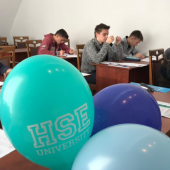Learning a new language can be difficult, or at the very least time consuming, but there are of course a number of different ways to help ease the process somewhat.
You may have heard that extended travel to a country where you do not speak the language can help you learn a great deal. Now that is certainly true, but it can still feel imposing to decide to spend months or years in a place where you can only speak a little bit, or not at all, to the locals.
Now, of course, you learn better in a different country because you’re forced to practice out of necessity. But there’s also another reason it becomes easier, something you can replicate at home before you leave: passive exposure.
Passive exposure is as it sounds, it’s listening to a language without actively listening to it. Basically, as long as you’ve previously studied something, your brain is capable of noticing and paying attention, thereby strengthening your understanding of what you’ve learned, even if it’s just noise in the background.
You may have noticed this phenomenon if you have watched anime films with a Japanese voiceover, or French films with subtitles. You may not necessarily be studying French or Japanese, but you may have found yourself recognising the occasional phrase or word here and there. If you were studying one of the two, your understanding of the language could improve greatly, even if you were concentrating more on the subtitles than the original language- that’s passive exposure.
Of course, films aren’t the only way to expose yourself to foreign languages, you can also listen to the radio, podcasts, music and TV in the language you are learning. It will help, even if you’re not really focusing on them, and they’re just on in the background.
That being said, you won’t learn a language purely through this method. You still have to focus, read and study it, ideally every day. But of course, if that still feels like a challenge, you can always travel to learn- it may just be the easiest way after all.










